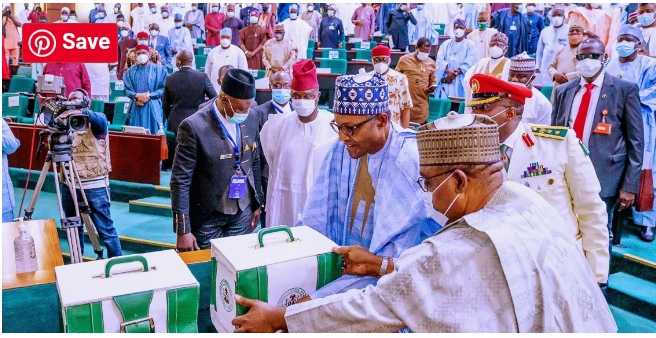By Oge Udegbunam and Mary Izuaka, Premium Times
Twelve out of Nigeria’s 36 States paid the least attention to the implementation of real and people-impacting projects, classified as capital expenditure in the 2019 Budget, recording a less than 30 percent performance, a new report says.
A report by the civic advocacy group, BudgIT, said among the 12 States, five ranked lowest.
The five States are Taraba, Ogun, Imo, Benue and Cross River.
The report showed that Cross River, which occupies the lowest position on the capital expenditure performance, budgeted N1.04 trillion for capital expenses but ended up spending N29 billion.
Taraba and Ogun budgeted N74.6 billon and N231.5 billion but spent N12.8 billion and N35.4 billion, respectively.
Imo budgeted N205.2 billion but spent N26.7 billion, while Benue budgeted N81.9 bn but spent N4.7 billion.
The other seven States with poor performance are Oyo with N151 billion budget and N28.9 billion spending, Bauchi with N131.5 billion budgetary proposal and N25.4 billion actual spending.
Kastina State allocated N144.7 billion but spent N31.6 billion; Kano allocated N133.9 billion but spent N31.2 billion; Niger allocated N 129.2 billion but spent N32. 3 billion; Ebonyi budgeted N141.6 bilion but spent N39.7 billion; and Plateau budgeted N68 billion and spent N19.4 billion.
Recurrent and Loan Spending Rise
BudgIT said in its Pattern of Expenditure report released Wednesday that while capital project execution fell, recurrent expenditure and loan repayment obligations of Nigeria’s 36 States grew by 4.75 per cent between 2018 and 2019 fiscal years.
Loan repayment and recurrent expenditures rose to N3.33 trillion from N3.17 trillion within the years under review.
BudgIT explained that the “rising nature of Nigeria’s sub-national Government expenditure is expected to yield economic growth, but over the years, analysis of States’ fiscal data has shown that growth in public spending has not translated meaningfully into economic performance as there’s still a high rate of unemployment, decaying infrastructure, and worsening poverty rate.”
“State Governments’ recurrent costs have increased significantly over the years with only a small portion of collected revenue and loans dedicated to meet capital,” the group said.
In 2019, BudgIT said, 11 States spent more on overhead costs than on capital expenditure, worsening the infrastructure deficit in those States.
“Nigeria’s desired economic growth can be achieved if the recurrent expenditure component is optimised while the spending component going to capital infrastructure especially in the economic and social sectors is prioritized,” the report said.
Top Performers
The group noted that there is a huge disparity between State Governments’ budgeted capital expenditure amounts and the actual performance of its capital expenditure in the 2019 fiscal year.
BudgIT said out of the 36 States of the federation only 11 States performed over 50 per cent average with Kaduna topping the list with 97.53 per cent followed by Yobe State with 76.21 per cent, and Rivers State with 74.53 per cent.
The report showed that Kaduna occupies the highest position on the capital expenditure performance, followed by Yobe and Rivers.
Others are Lagos with 69.81 per cent, Jigawa 67.99 per cent, Abia 65 per cent, Delta with 59.01 per cent, Enugu with 57.28 per cent, Anambra with 53.92 per cent, Kwara 52.31 per cent and Gombe State with 50.41 per cent.
The group said it is also sad to see that 12 States recorded a capital budget performance of less than 30 per cent.
“A major reason is also the lack of budget realism across States in Nigeria,” the report said.
Furthermore, it said “For example, Cross River had 2.78% performance due to its bloated projections of N1.04tn. As seen also in the Federal Government, most States project high budget numbers only to meet the recurrent expenditure component due to its “compulsory” payments to staff and running of Government, which starve opportunities to expand capital projects.”
BudgIT explained that over the years, the sub-national Governments actual capital expenditure spending has consistently fallen lower than their budget targets and this has become a common trend whereby state Governments fail to meet their capital expenditure obligations usually by a huge percentage. The report said the States also prioritised recurrent expenditure.
Recommendations
The report said sub-national Governments need to reevaluate their various approaches to funding and executing capital projects within their respective States.
“State Governments budgets are filled with a large number of unnecessary projects that have no developmental or economic impact or benefit and can largely be viewed as an irresponsible waste of resources,” it said.
“Some of these administrative projects have huge price tags attached to them amounts which could be diverted elsewhere based on the needs and realities of the populace,” the report said.
The report said aside from interventions from the Federal Government and private sectors, States need to perform better.
“Not all the funding to close Nigeria’s infrastructure gap will come from the State Government; the Federal Government and even the private sector have roles to play, but clearly, State Governments need to do better,” it said.
Not only will the State Government provide funds, it said they need to restructure their spending, increase spending on capital projects, comparatively reduce recurrent expenditure to a sustainable level, and ensure effectiveness of all expenditure.
